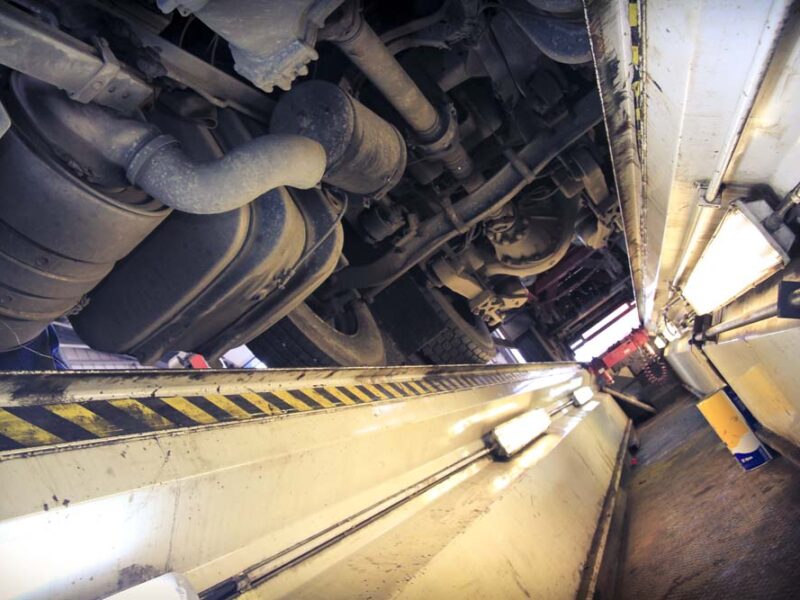Recently a plumber won a legal battle for working rights in the latest of what has been a spate of court rulings over freelance operations in the modern workplace. The Court of Appeal case against Pimlico Plumbers decided that the plumber who had been working on a self-employed contractor basis for a number of years was really an employee and as such was entitled to normal employee protection.
Pimlico Plumbers have said that they will be taking the case to the UK Supreme Court to try to get the decision overturned and we will be watching to see how that turns out. But this is not the first case to challenge the Employed or Self-employed status of workers; Uber was also recently challenged in the courts. Two Uber drivers claimed the company was acting unlawfully by not paying holiday or sick pay, despite them being classed by Uber as "Self-Employed". An employment tribunal in London ruled that those Uber drivers were 'workers' and were NOT self-employed.
Unions hate this type of 'contract' because the lose membership and so does the 'taxman' because it loses revenue and because of this industries with large numbers of self-employed workers are under ever increasing scrutiny and this very much applies to the Transport industry, where a high number of drivers are working as self-employed contractors. Operators should not assume that they can just call someone an independent driver and pay them on a gross basis leaving them to sort out their own tax and other arrangements. There are may other factors which have to be considered when determining who is and who is not, in reality, a true contractor and therefore entitled to be treated as being 'self-employed'. It can be an expensive business if a judgement goes against a company as there is the matter of back tax, NI etcetera to be accounted for and the possibility of a fine on top.
Operators should also keep a wary eye on the view that their Traffic Commissioner might take - 'fair competition' includes paying taxes properly owed, and Traffic Commissioners are entitled to take into account the way in which operators employ their drivers when considering issues going to 'good repute'.
The question in the title is well put. How do you know if your drivers are "proper" contractors, or workers masquerading to the outside world as independent contractors? And is your business possibly at risk? If you have contractors working for you make sure their paperwork is correct and ensure that your working arrangements reflect the legal requirements of each of the specific definitions.
If you need help with this, then please call us now on 01279 818280, or click here. One of our employment team will be happy to help.

More News and Insight

Social Media – Have you Thought about your Employees’ Use?
Social Media is all encompassing in the modern world, but although it brings many positives, it can place employers in vulnerable positions if their employees’ use is not carefully defined…

Changes to the Clandestine Entrant Civil Penalty Scheme means a Stitch in Time Really Does Save Nine!
The Clandestine Entrant Civil Penalty Scheme has been in place for over 20 years. It is designed to complement law enforcement activity against criminals who smuggle people into the UK illegally as well as deter those who decide to try to enter the country without permission…

Driving in the UK? Read about the latest Rule Changes in 2024
Earlier this year various new driving laws were introduced, impacting both standard road users as well as HGV and PSV road users across England, Wales & Scotland. If you are driving in the UK, especially if you are a commercial driver, then you should ensure that you are aware of these amendments and new rules…

Self-Driving Cars on UK Roads to be Reality by 2026
It seems that one of the first areas that will be breaking the ground in the AI revolution into most people’s everyday lives will be Self-Driving cars! Of course we have heard all this before, and more than once!

Are You Taking your Responsibilities to Maintain your Vehicles Seriously?
Running a haulage business is not an easy undertaking. There are a multitude of decisions to be made on a daily basis before any driver actually gets behind the wheel and delivers the goods (or passengers!).

Update to the Guide to Registering & Operating Local Bus Services in England & Wales
The Senior Traffic Commissioner’s guide to registering and operating local bus services in England and Wales is intended to help operators of local bus services understand the requirements for registering a service.

Changes to the HGV & PSV Test Regime for Earned Recognition Operators
In March 2021 the Government began a review into the processes for commercial vehicle testing to look at ways it could improve the regime for operators whilst still maintaining high safety standards for any vehicle used commercially on the UK’s roads.

Employment Law Updates for 2024
The Government has confirmed several legislative employment law changes to be implemented 2024, which aim to bring about a “fairer workplace for employees”.

Campaign to Bar Schools from using Section 19 Permits
In March 2024 a campaign was started to end the operation of minibuses by schools and colleges under Section 19 permits.

Moving to a Digital First Approach in Heavy Vehicle Testing
The DVSA has published an update to their digital transformation project for heavy vehicle testing. The update is for the new Manage Your Vehicle Testing (MyVT) digital service across vehicle testing.

Traffic Commissioner Highlights Abuse of Section-19 Permits
In a Section 19 Public Inquiry hearing heard last year (2023) the Traffic Commissioner highlighted again the importance of permit operators ensuring that their vehicles allow passengers and other road users to be safe.

Enero Logistics Ltd – the Law for Operators on Agency Drivers
At one time or another, many transport companies need to rely on the services provided by agency drivers, to best cope with sudden fluctuations in demand or to fill driver shortages. This allows for the undisrupted continuation of services by these organisations.
